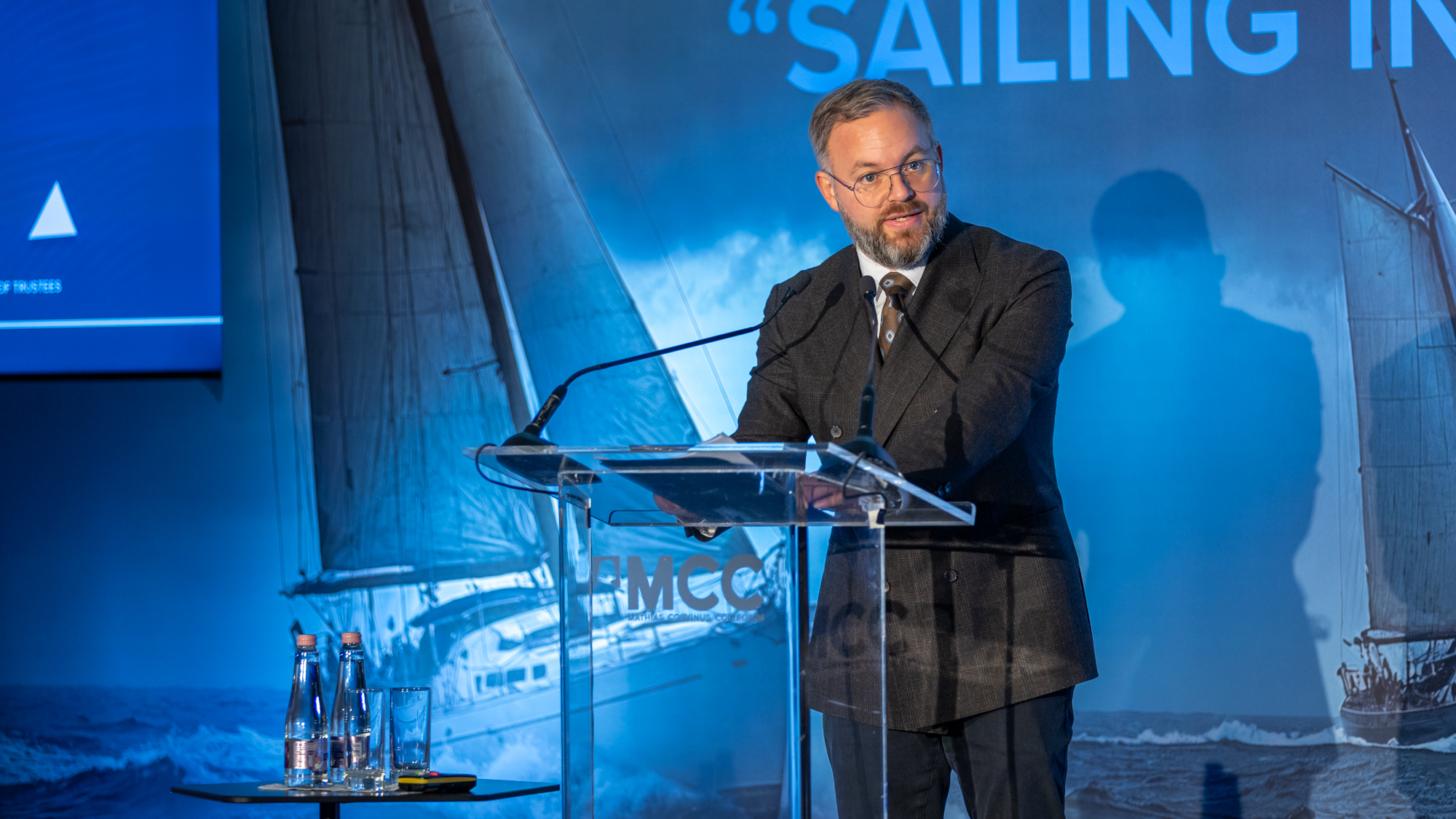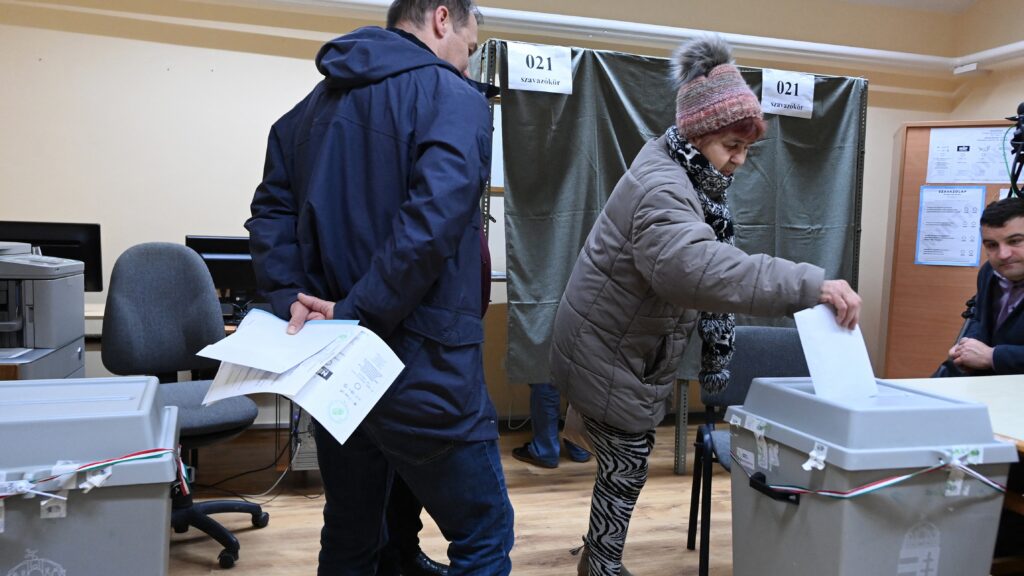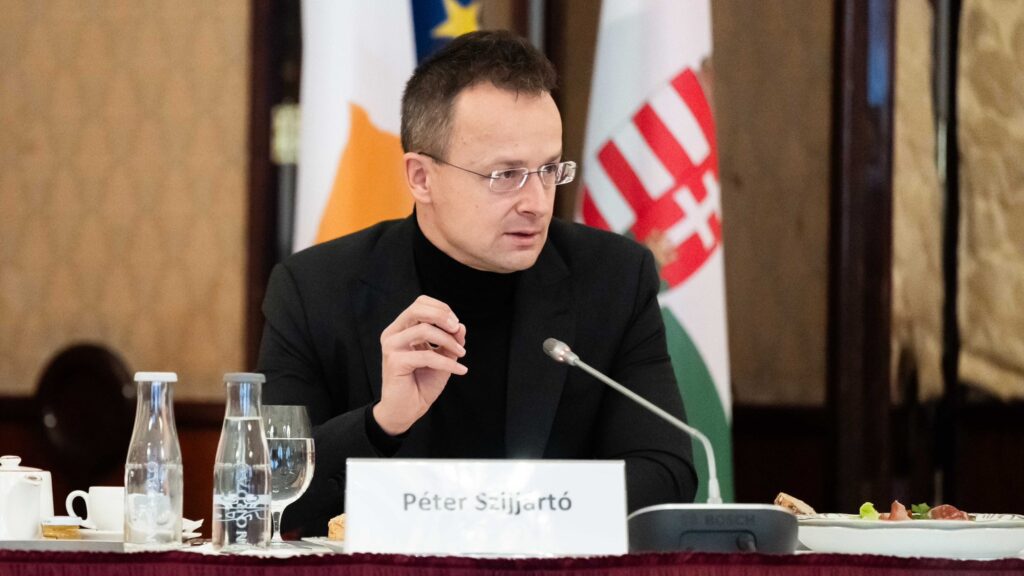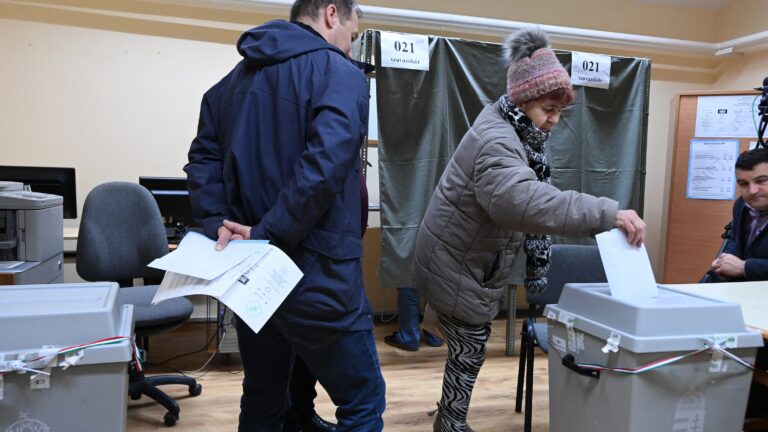The Mathias Corvinus Collegium’s (MCC) Leadership Academy held a conference at the MCC Budapest campus on Tuesday, 21 October. The topic of the day: leadership during crisis, hence the title of the event, ‘Sailing in Storm’.
Balázs Orbán, Political Director for the Prime Minister of Hungary and Chairman of the MCC Board of Trustees, was the first to address the audience. He started by describing MCC as ‘the largest talent training institute in the country’, and added that the individual successes of the students also serve the common good of Hungary. He then went on to say that the so-called ‘leading leaders’ are not only leaders of a community, but also have outstanding competence in their respective fields and the ability to remain calm in stressful situations.
On that note, we got the theme of the conference, leadership during crisis. Mr Orbán shared that he disapproves of the term ‘crisis management’, often used in the literature about corporate leadership, as one is not meant to simply ‘manage’ a crisis, but to solve it—the way US President Donald Trump and Prime Minister Viktor Orbán of Hungary are attempting to solve the crisis that is the Russo–Ukrainian war, for instance, he added. The speaker also referred to 19th-century German philosopher Friedrich Nietzsche, who believed that we need a balance of order and chaos, otherwise we’ll be faced with tragedy; and stated that the way to solve a crisis is to integrate the new that emerges from upheaval into the existing system. In other words, as Mr Orbán put it, ‘dance on the edge of the predictable and the unpredictable, the familiar and the new’.
Deputy Director General for Postgraduate Programmes at MCC Péter Túri took the stage next. He stressed that every set of circumstances and every era demands different qualities from great leaders. Today, he said, the challenges that command the most attention include the COVID-19 pandemic, the rise of social media, and the rapid development of artificial intelligence. Túri compared these transformations to epochal shifts such as the discovery of the New World, the Industrial Revolution, or the Enlightenment—with one key difference: the speed at which change now occurs is exponentially faster. What remains constant, he noted, is that the greatest leaders of any age must make consequential decisions even ‘when there is nothing to hold onto’, often relying on intuition.
The speaker also told the audience that ‘failure is not the opposite of success, but its prelude,’ citing the famous story of American inventor Thomas Edison creating over a thousand unsuccessful prototypes of the lightbulb before finally producing a working one. Mr Túri also shared the motto of the Mathias Corvinus Collegium, which is: ‘Know yourself, know your place in the world, and be able to make decisions’.
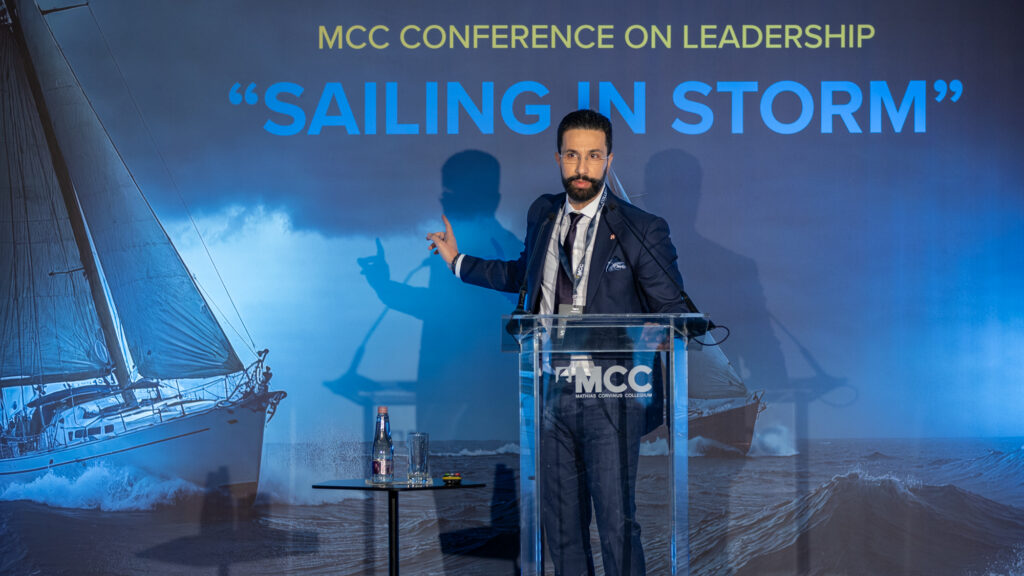
Mark Khater, Head of Centre for Strategy and Performance at the Institute of Manufacturing at the University of Cambridge, lauded MCC students for not only standing out with their intellect, but also with ethics. He then went on to state that resilience and adaptability are two of the most important attributes of a leader in a crisis situation; and that the proverbial storm raging today in tech is the rise of AI. However, he also stressed that ‘AI will not replace leaders, it will replace those who fail to adapt’.
Mr Khater opined that it is incumbent upon the great leaders to bridge the gap between generations, as well as—to continue with the metaphor of a storm at sea—to ‘leave behind a stronger ship and a braver crew’.
Chief Academic Mentor of the MCC Leadership Academy Gábor Csepregi followed, who spoke about how leaders can learn a lot from reading books, be they biographies, novels, or letters. He brought up the novella ‘Typhoon’ by Joseph Conrad, published in 1902, as an example. The story is about how a skilled captain deals with navigating through a typhoon. What Mr Csepregi highlighted in the story was how Captain MacWhirr reads all the manuals about how to sail in a storm, but decides to ignore all of them.
Mathias Corvinus Collegium on X (formerly Twitter): “At today’s Leadership Conference, Academic Advisor Gábor Csepregi drew inspiration from Captain MacWhirr – a leader who faces the storm not with panic, but with judgment, calm, and determination.He spoke about resistance as the force that tests every leader, reminding that real… pic.twitter.com/hVKE3MW615 / X”
At today’s Leadership Conference, Academic Advisor Gábor Csepregi drew inspiration from Captain MacWhirr – a leader who faces the storm not with panic, but with judgment, calm, and determination.He spoke about resistance as the force that tests every leader, reminding that real… pic.twitter.com/hVKE3MW615
The speaker also said that ‘resistance’, meaning challenges, is how we know that we are living in reality; and encouraged leaders in difficult situations to have consultations with others around them to get to a consensus, have ‘an elevated vision’, meaning an awareness of the broader picture, and keep their common sense and sense of humour. He also admitted that successful leaders need a considerable amount of luck as well.
Szabolcs Szolnoki, Deputy Secretary of State for Technology, Space, and Defence Industry of Hungary; Daniel Dan, Assistant Professor at Modul University Vienna, founder of the School of Applied Data Science; and Katalin Erdei, HR and Technical Director at Richter Gedeon Nyrt joined Mr Khater on stage for a panel discussion on AI and leadership. MCC student János Urbancsek took on the role of the moderator.
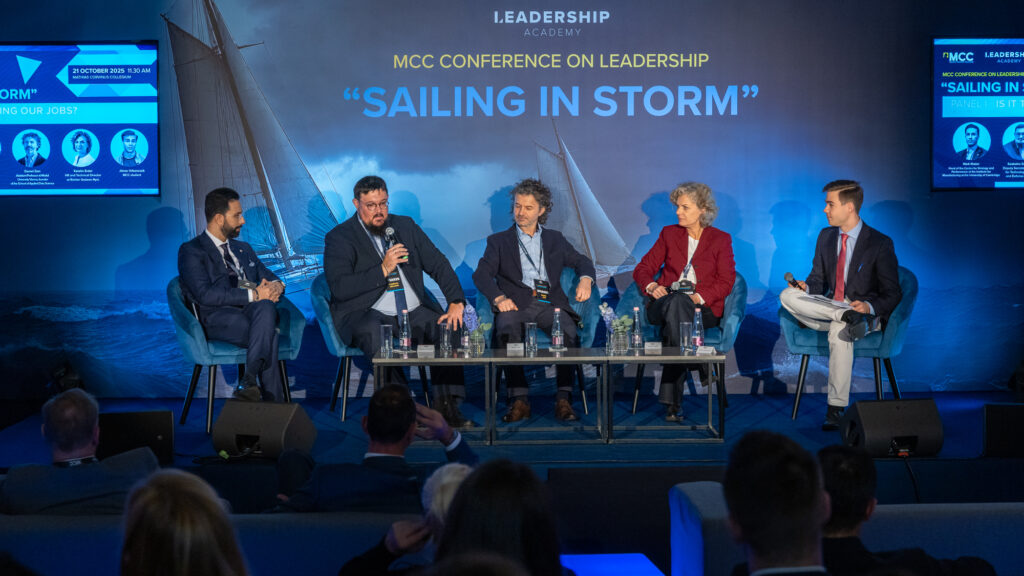
Mr Szolnoki shared that the National Assembly of Hungary is in the final stages of passing a new piece of AI legislation, which not only includes regulations, but also funding for public education programmes about the new technology. Mr Khater brought attention to the fact that what most people refer to as ‘AI’ is technically not artificial intelligence, but so-called ‘Large Language Models (LLMs)’, such as ChatGPT. He also warned leaders not to overspend and overcommit to current AI technology, as it will change rapidly.
Mr Dan stated that he believes competency with AI will become as crucial a skill as literacy was in the last century. However, he also warned against placing too much trust in the output of large language models, emphasizing the need to verify their results with experts. Meanwhile, Ms Erdei noted that familiarity with AI is currently in short supply in the Hungarian labour force; and while AI is highly useful in generating more data, it also poses the additional challenge of determining which data are truly valuable.
Related articles:

